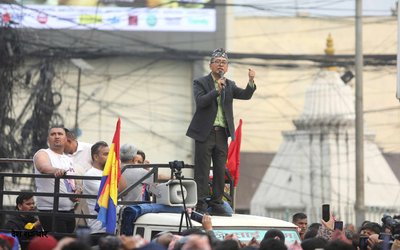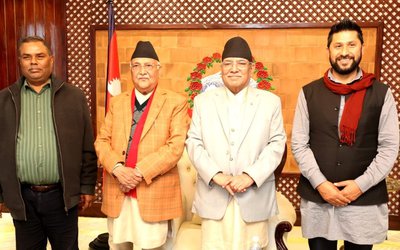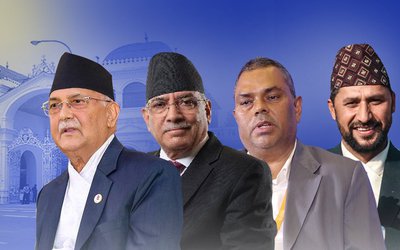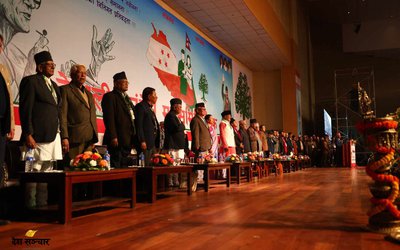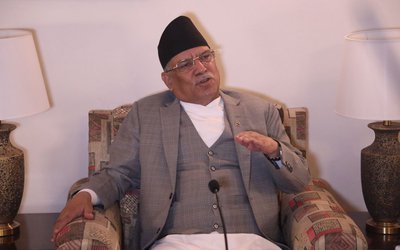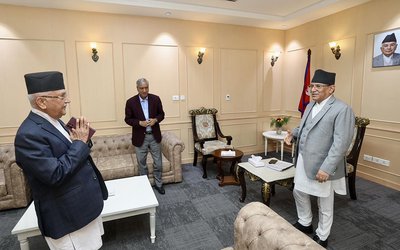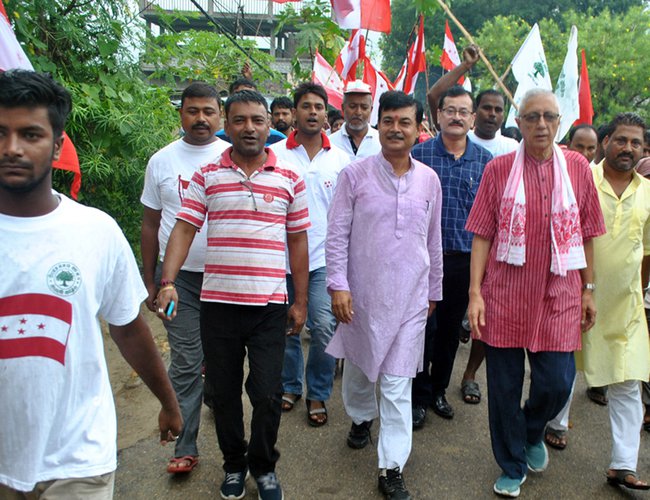
If elections are held as proposed by the Election Commission on November 26 and December 7, Nepal’s entire state structures will see drastic changes. Following the elections of local level, Nepal’s third tier of government, new challenges of power sharing have cropped up. The completion of national and provincial parliaments will add two more tiers to the power equation.
With a unitary state, Nepal had for long been under the state power centralized in Kathmandu. However, the elections will transform more than two hundred years old practices, traditions and power structures.
As per the constitutional provision, seven provinces will have seven parliaments, head of the government and various ministries, including the home affairs and state police. The present constitution also has provisions which will allow local bodies to have police on their own.
With three tiers of security agencies and multiple other agencies, there will be more problems in their coordination. Four provinces No 1, 3, 4 and 7 share borders with India and China, provinces 2 and 6 share borders with India and province 5 shares border with China.
Currently, India has a Consulate General's Office in Birgunj, which lies in province 2. However, China does not have such consulate general offices in any province. In a recent press report, China has reportedly shown interest to open Consulate General Office in Pokhara, which is likely to be the provincial capital of no 4 province.
With a long open border, India’s security agencies have been raising their concern on security and criminal activities and counterfeit currency with Nepal. Chinese media have also recently started to raise similar kinds of issues.
Having well-established and stable security and other state institutions, Nepal’s two neighbors are likely to express more concerns over the newly established security institutions.
Given the recently settled border disputes between India and China over Bhutan’s Doklam area, more pressure is likely on Nepal’s new security institutions from both of its neighbors. As Nepal’s security institutions are facing several problems, including politicization, it will be natural for Nepal’s two neighbors to express their own concerns.
Nepal’s Preparations
Almost two years have already passed since the promulgation of the new constitution; but the state is yet to establish a proper institutional setup. Just a week back, Ministry of Home Affairs posted seven Additional Inspector Generals of Police to lead the provincial police teams. The Ministry is yet to take a decision on Intelligence Offices. Similarly, acts on the role of current set ups, Nepal Police, district administration and others, are yet to be formulated.
With the handing over of the report by the Electoral Constituency Delineation Commission (CDC) to the government, there are 165 electoral constituencies for the election of House of Representatives and 330 constituencies for the election of provincial assemblies.
All eight districts of Province 2, where the final phase of local elections is scheduled for September 18, have four constituencies each. Province 3 will have the highest number of constituencies with 33, followed by Province 2 (32 constituencies), Province 1 (28 constituencies), Province 5 (26 constituencies), Province 4 (18 constituencies), Province 7 (16 constituencies) and Province 6 (12 constituencies).
“As this constitution is purely a product of Nepal’s current political parties, they will set up all the institutions to implement the constitution and make it functional,” said former Home Minister and leader of Nepali Congress, who played a key role in finalizing the present constitution in a program, Challenges of Implementation of Constitution, organized by Nepal Constitution Foundation. “Everything will be alright following the elections for national and provincial levels,” said Sitaula confidently.
However, constitutional experts and political scientists express doubts. They show the challenges faced by mature democracy like Australia, Canada and South Africa in implementing their federal structures. Prominent constitutional lawyer Dr. Surya Dhungel has expressed concern over the institutional capability in the governance level.
As the last phase of local elections at province no 2 is under way, national and provincial level elections, scheduled for November 25 and December 6, will bring a completely new setup and institution everywhere.
With a relatively small economy, unstable political process, weak institution and capability, Nepal’s march to implement federal constitution in the regional situation at present will be very tricky.
- TANAHU HYDROPOWER PROEJCT: A Significant Achievement
- Apr 15, 2024
- AMBASSADOR HANAN GODAR: Sharing Pain With A Nepali Family
- Mar 30, 2024
- VISIT OF KfW AND EIB TO NEPAL : Mission Matters
- Mar 25, 2024
- NEPAL BRITAIN SOCIETY: Pratima Pande's Leadership
- Mar 24, 2024
- NEPAL ARMY DAY: Time To Recall Glory
- Mar 15, 2024

